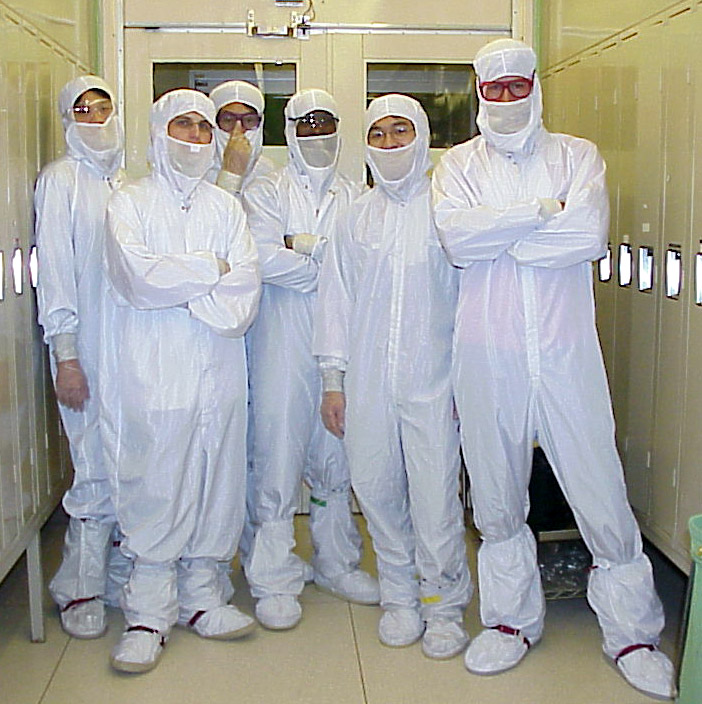The semiconductor industry plays a crucial role in today's technological advancements, powering devices like smartphones, cars, and washing machines. With the increasing demand for semiconductors, there is a need for skilled workers in this field. One program addressing this shortage is the "Quick Start" program, a partnership between major semiconductor companies like Intel and Taiwan Semiconductor Manufacturing Company (TSMC), and three community colleges in Maricopa County, Arizona.

Lisa Strothers, a single mother who was laid off from her job in the mortgage industry, found out about the Quick Start program through an email. Intrigued by the opportunity to enter the tech field without any prior experience, she decided to apply. The program, designed for a diverse range of candidates, offered a 10-day crash course on becoming a semiconductor processing technician. Additionally, successful completion of the course guaranteed an interview with a semiconductor company.
The Quick Start program has gained traction due to the growing demand for skilled workers in the US semiconductor industry. The Chips and Science Act, signed into law by President Biden, allocated over $52 billion in semiconductor subsidies to strengthen supply chains and reduce dependence on China and Taiwan. This has led to the establishment of semiconductor factories in the US, particularly in Arizona, which is home to major players like Intel and TSMC. The industry's center of operations in Arizona has attracted numerous semiconductor-related companies, resulting in the need for skilled workers.
Community colleges and universities across the country are partnering with semiconductor companies to bridge the workforce gap. The Quick Start program, for example, aims to train and place over 20,000 workers in the semiconductor industry in Arizona in the coming years. By collaborating with industry experts and offering hands-on training, programs like Quick Start are equipping students with the necessary skills to meet the industry's demands.
The Quick Start program at Mesa Community College (MCCC) in Maricopa County is a 10-day course that costs $291 in tuition fees, but the tuition is covered by grant funding for Arizona residents. The program encourages individuals from diverse backgrounds to enroll, with two-thirds of the students being people of color and one-third being women. The curriculum includes a combination of lectures and hands-on experiences, with Intel employees serving as instructors. Students learn about the role of semiconductor processing technicians and get practical training in troubleshooting tools in a simulation fab environment.
Lisa Strothers successfully completed the program and obtained a semiconductor pre-apprentice credential. Shortly after finishing the course, she interviewed for semiconductor processing technician roles and secured a position at Intel's Ocotillo factory. The program has had positive outcomes for many students, with 31% of former Quick Start students indicating they have been hired in the field.
Becoming a semiconductor processing technician offers both advantages and challenges. On the positive side, the job provides opportunities for career growth and a higher income compared to previous roles. The average annual income for Quick Start graduates is around $43,000, and entry-level technicians can earn between $20 and $25 per hour. The work itself is described as never boring, with opportunities for continuous learning and training. Semiconductor processing technicians often serve as a point of contact between the technicians and the engineers, ensuring smooth operations.
However, there are also challenges, such as the schedule, which typically involves 12-hour shifts three to four days per week. This can be demanding, particularly for those with additional responsibilities like being a single parent. Despite these challenges, the unique opportunities for growth and job satisfaction make the semiconductor industry appealing to many.
Lisa Strothers offers advice to those considering enrolling in the Quick Start program or similar initiatives. She emphasizes the importance of being open to learning and being willing to take constructive criticism. Patience is also key when starting in a new field, as the initial lack of knowledge can be overwhelming. As long as students are patient, pay attention, attend classes, and believe in themselves, they can succeed in the program and the semiconductor industry.
Looking ahead, Lisa plans to continue her career at Intel, seeing it as a stepping stone to various opportunities within the company. She believes that working in semiconductors not only offers technical roles but also positions in other areas like legal or media teams. She aspires to find a position with a schedule that allows her to spend more time with her daughter while still pursuing her career goals.
Programs like Quick Start are valuable in addressing the shortage of skilled workers in the semiconductor industry. By providing accessible training and partnering with industry leaders, these programs offer individuals like Lisa Strothers a pathway to enter a rapidly growing field and build successful careers.







